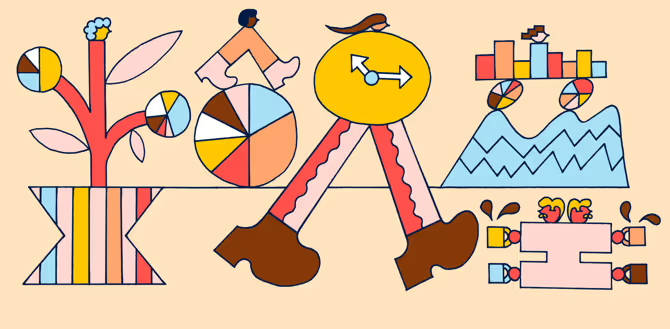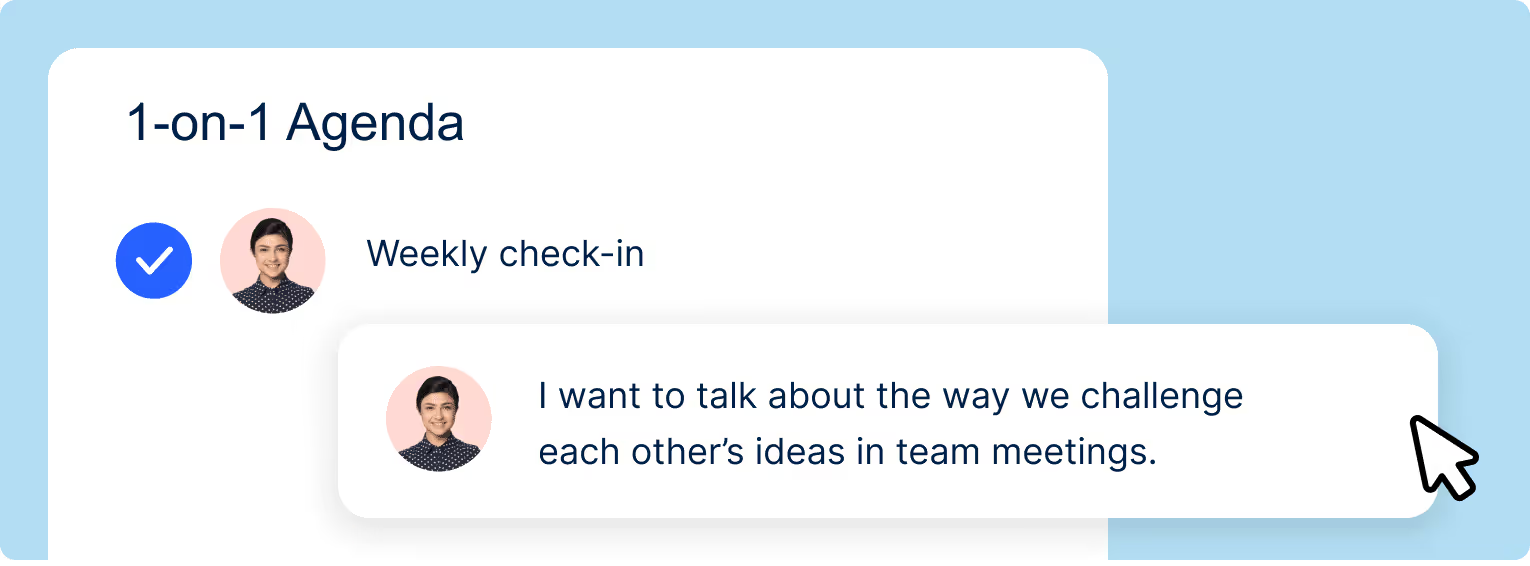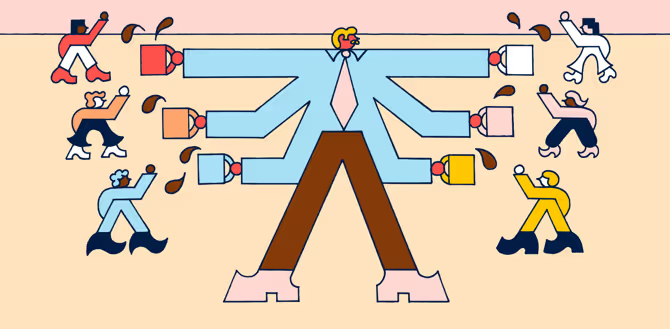From forming to performing: leading through the 4 stages of team development

From flawed to flawless: 5 steps to leading distributed teams

Your team has behavioural patterns. If you reflect on them, they'll tell you a cohesive story about their strengths, needs and performance.
To properly and clearly identify these in group form, we use the 4 stages of team development.
This is a concept that psychologist Bruce Tuckman came up with to properly understand the progress of various teams and the development of key contributors.
{emphasize}The stages are: forming, followed by storming, norming and performing.{emphasize}
Identifying each of the 4 stages of team development helps you underscore your team's needs during each one.
Then, as soon as you outline the stage your team is in, you can confidently address their needs and set them up for growth throughout each forthcoming stage.
Let's learn about 4 stages of team development.
The forming stage
As its name suggests, the forming stage is formative. It's the time where your team learns about upcoming projects and structures. Here, it's typical for teammates to feel excited, anxious, and curious about what lies ahead.
No matter what their feelings are, one common denominator is: teams look to their leaders for information.
It's up to you to provide clarity, ensure team alignment and employee motivation.
When your team learns more context about what's required of them in this stage, they'll feel more confident.
As a result, you'll establish yourself as a leader of a team rooted in transparency and trust while you communicate clear expectations and team principles.
This is the foundation that will set up the next stage successfully.
{emphasize}Officevibe helps you lead through difficult conversations using our helpful 1-on-1 tool.{emphasize}

{emphasize}
This way, you can prepare for conversations that build trust while supporting your team and leading through each team development stage.
{emphasize}
{emphasize}
Scenario: You're leading your team through the forming stage
Your team is new and excited to learn about upcoming projects as well as about each other. You outline the work, as well as key milestones, deliverables and objectives.
You recognize that your team is new, and want them to feel supported, motivated and psychologically safe. So, you host a meeting where your team can get to know one another, their work style, and the way they feel appreciated.
In this meeting, you take notes from each team member and apply these to your team principles. This way, each employee knows they can trust you, and each other going forward.{emphasize}
Signs and questions to look out for in the forming stage
What are the signs of a team in the forming stage?
- Nervousness
- Trepidations
- Concerns
Every manager's leadership style is different. No matter your style, here are helpful questions to ask your team:
- How are you feeling about what's coming up?
- Do you feel you have what you need to succeed, if not, how can I support you?
- How do you feel you can best support each other?
The storming stage
Your team will experience obstacles in the storming stage. This is because they've begun working. While originally things had been going according to plan, roadblocks crop up during this stage.
Your team needs to communicate clearly and, rely on one another rather than turn on each other. This is a crucial point in team development where leaders can pinpoint bottlenecks, areas of improvement and couple them with team strengths to build forward momentum.
The thing is, not every team is cut from the same cloth. Some team members may see your involvement as micro-managing or frustrating.
This is where it's important to level with individual contributors and truly get to know what's going on. This is a great time to reflect on what makes a high-performing team able to accomplish tasks and move through obstacles.
{emphasize}
Scenario: You're leading your team through the storming stage
It's been a few weeks, and your team has gotten to know one another. Especially as it relates to their working style. The problem is, they're coming up against harsh deadlines, and mistakes have been made along the way.
You recognize this isn't any one team member's fault, but you want to make it right. The last thing you want to experience is team members who de-value one another or collectively fall behind.
You approach your team to learn about their bottlenecks, roadblocks and concerns. You come to realize that, by involving yourself, they're burdened by an apprehension to speak up and would rather spend time rectifying the situation.
You book 1-on-1 meetings with team members to learn about each of their experiences. As you do this, you recognize clear and consistent points with each team member and the benefits of hosting a team retrospective.
This way, they'll remain high-performing while re-establishing trusted connections.{emphasize}
Signs and questions to look out for in the storming stage
What are the signs of a team in the storming stage?
- Hearing frequent complaints, frustrations, or bottlenecks
- These can be among team members, or from employees who come to you directly.
Questions to ask:
- Are you available to talk about this in our 1-on-1?
- How can I support you during this time?
In a group setting try asking:
- What does a high-performing team look and feel like to you?
- How can you help each other lean into what you believe makes a team successful?
The norming stage
Team development is more apparent in the norming stage. This is because your team recognizes how they can trust you and each other in order to complete tasks, move towards their objectives and rely on each other for help.
After the storming stage, they recognize behavioural patterns, strengths and develop foresight for upcoming roadblocks.
The norming stage is more harmonious since teams understand why it's important to ask for help, and how to come to you with questions when they need guidance.
This is the perfect team development stage to learn about how your team overcomes obstacles and bonds through shared experiences.
{emphasize}
Scenario: You're leading your team through the norming stage
Picture this: Your team has come a long way and knows how to communicate their needs effectively.
Not only are you proud of the team development they've exemplified, but you're also proud of their individual capacity to stay in integrity with the quality of their work.
They feel confident and comfortable when approaching you with concerns and questions.
At this point, you recognize that your team has grown significantly and is capable of achieving big things together.{emphasize}
Signs and questions to look out for in the norming stage
What are the signs of a team in the norming stage?
- Your team asks questions formulated in ways that are rooted in emotional intelligent practices.
- Teams are autonomous, they know where to look for what they need and when it's appropriate to put their hand up for help.
- Employees rely on each other, collaborate effectively and there's a more lighthearted feel to the group.
Questions to ask your team when they're in the norming stage:
- Do you feel confident and comfortable coming to me with questions and help?
- What did you learn about yourself and one another so far? This gives them an opportunity to recognize their abilities as well as those of their teammates.
The performing stage
When your team has grown through the stages of team development they establish a state of "flow". This means they understand how to work together in a cohesive way that helps them reach their goals.
The performing stage is a clear indication that your team is in a state of alignment. They not only understand how to ask for help, but they've also developed a gauge for when it's an opportune moment to speak up, and involve you.
In the performing stage, you'll notice fluidity with communication and overall conversations. This is demonstrated through high morale, productivity and engagement. It's an ideal state for any manager to witness their team's growth and ask reflective questions.
In this stage, your team is able to evaluate both sides of the coin: what went well and what didn't and outline what they need in the future.
{emphasize}
Scenario: You're leading your team through the performing stage
It's crunch time and you check on your team's progress. As you communicate with them you notice how confidently they articulate their ideas.
How they trust each other to remain accountable for their tasks without dropping the ball. In fact, momentum doesn't only seem high, it feels favourable.
As you learn about their progress, you ask them questions about their processes and notice how they collaboratively provide constructive answers.
Here, psychological safety isn't only a prerequisite, it's a principle embodied by your team.{emphasize}
Signs and questions to look out for in the performing stage
What are the signs of a team in the performing stage?
- Cohesive and clear communication. This is indicated through the project stage which is either completed or very nearly there.
- Your team feels confident, excited and satisfied with their work.
Questions to ask your team in the performing stage include:
- How was your experience on this project?
- What did you enjoy the most? What was the most arduous?
- How did you overcome adversity both individually and as a team?
- How can I improve my support for the team and yourself individually next time?
The team development loop
Every team has different needs when it comes to their development. Which means, you may experience these stages in sequential order, or find yourself in a loop with one or more of the stages outlined above.
Each stage of team development doesn't necessarily take just as much time as the one that comes after it, nor the one before it.
We know this might sound confusing. Here's the thing, the line between certain stages can get blurred since team members evolve at different times.
When this happens, it's important to take stock of what your team needs.
Ultimately, the goal is to make sure you can provide psychological safety as a baseline, evaluate team patterns of behaviour and notice when you're in a negative cycle.
Remain solution-oriented and ask questions that will prompt clear and actionable responses.
They'll look to you for guidance and support, and when you establish a trusting two-way conversation, you'll pave the way towards their professional growth.
After all, their ability to overcome obstacles and achieve their goals is a reflection of a management job well done.
Give HR and managers the clarity, confidence, and connection to lead better every day.












